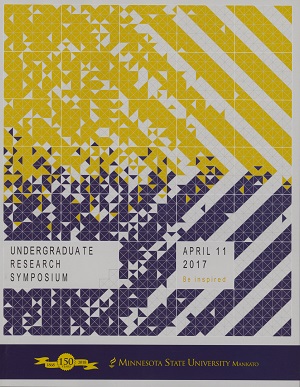An Updated Look at Consultation Training, Skills and Engagement in the Schools
Location
CSU Ballroom
Start Date
11-4-2017 2:00 PM
End Date
11-4-2017 3:30 PM
Student's Major
Psychology
Student's College
Social and Behavioral Sciences
Mentor's Name
Carlos Panahon
Mentor's Department
Psychology
Mentor's College
Social and Behavioral Sciences
Second Mentor's Name
Shawna Petersen-Brown
Second Mentor's Department
Psychology
Second Mentor's College
Social and Behavioral Sciences
Third Mentor's Name
Megan Johnson
Third Mentor's Deparment
Psychology
Third Mentor's College
Social and Behavioral Sciences
Description
The goal of this project was to expand upon the findings from Constenbader, Swartz, and Petrix (1992) that analyzed training and current practices in consultation for practicing school psychologists. Constenbader and colleagues found that 61% of practitioners had less than one semester of training, half agreed that their training was less than adequate, and practitioners currently spend less than 1/3 of their time in consulting roles, however, they want to spend more time consulting. Consultation is a key component in practice and training for school psychologists.
Because of this, it is important to update this research to see if practitioners are better equipped to support staff and help students achieve academically and behaviorally in the schools. A survey consisting of 38 multiple choice and Likert scale (1-5 point scale from great ability to little ability) questions was sent to practicing school psychologists within the Midwest and Eastern regions of the US. Questions that were included in the survey asked for basic demographics, experience level, formal training in consultation, consultation model used, time spent engaged in consultation and desired time spent doing consultation work. The current data were analyzed and compared to the Constenbader and collegues (1992) findings.
An Updated Look at Consultation Training, Skills and Engagement in the Schools
CSU Ballroom
The goal of this project was to expand upon the findings from Constenbader, Swartz, and Petrix (1992) that analyzed training and current practices in consultation for practicing school psychologists. Constenbader and colleagues found that 61% of practitioners had less than one semester of training, half agreed that their training was less than adequate, and practitioners currently spend less than 1/3 of their time in consulting roles, however, they want to spend more time consulting. Consultation is a key component in practice and training for school psychologists.
Because of this, it is important to update this research to see if practitioners are better equipped to support staff and help students achieve academically and behaviorally in the schools. A survey consisting of 38 multiple choice and Likert scale (1-5 point scale from great ability to little ability) questions was sent to practicing school psychologists within the Midwest and Eastern regions of the US. Questions that were included in the survey asked for basic demographics, experience level, formal training in consultation, consultation model used, time spent engaged in consultation and desired time spent doing consultation work. The current data were analyzed and compared to the Constenbader and collegues (1992) findings.
Recommended Citation
Kahnke, Erin. "An Updated Look at Consultation Training, Skills and Engagement in the Schools." Undergraduate Research Symposium, Mankato, MN, April 11, 2017.
https://cornerstone.lib.mnsu.edu/urs/2017/poster-session-B/27




